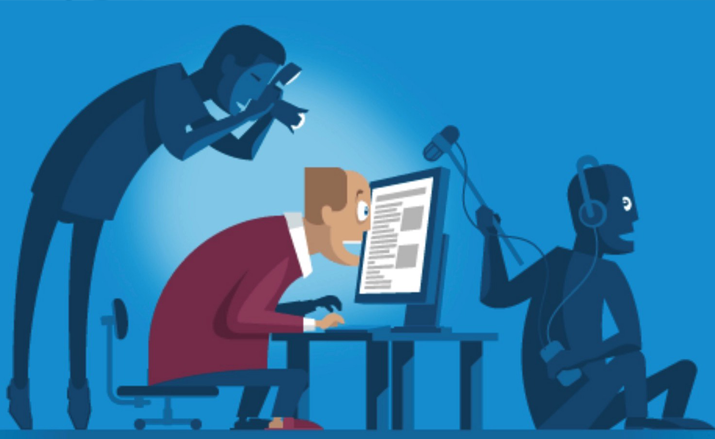

As we are becoming more dependent on technology, as so the world’s data is growing exponentially, cybercriminals have concocted progressively complex approaches to get hold of your data, it can be a simple password hack and phishing scams to malware attacks. In some cases, just over sharing can make your own data be utilized misguidedly. If you need to keep your private data private, there are presently many things you have to consider. Here are few spots to begin.
This is the time when everybody is online and using social media platforms at an extended level, and you can’t deny the fact that many social media companies use user’s personal information to deliver compatible ads. So, whenever you join any new social media platform, we agree to terms and condition which look like they are genuine (honestly, nobody is interested to read them carefully as they are very long and takes much time). However, many platforms provide the options to modify which information is made public. That’s why it is worth checking your privacy settings on every platform on which you have your accounts in a month or so. If you’ve been regular user since social began, chances are there are some posts you’d rather keep hidden!
Keep in mind that publicly sharing your name, address, date of birth and other personal data make it more easy for offenders to hack into your online records and even apply for Visas and credits in your name. Think before you post. In case your address is publicly available on your profile, and you posted something which can be misused by criminals, so just make sure all your personal information is only shared with friends and connections.
After a while, it’s is very normal that we want to clear our browsing history but not so with cookies unless you know what they do. Cookies information can be both great and terrible. They were designed with the goal that when you go to a website you've recently visited, your PC doesn't need to re-download the webpage's information, which is valuable. However, cookies are also used by ad networks. If in case you've seen similar advertisements pursuing you around the web, cookies are to be faulted. Erasing your cookies will stop this.
Normally cookies are used to store your passwords. If you share a computer we recommend that once you’ve finished browsing, cookies are deleted to prevent the next user from potentially being able to log into your online accounts.
A default clean using a System Optimizer will delete browsing history and cookies for you and this doesn't imply that passwords must be erased. All cleans are adjustable so if your machine is your own, your passwords can remain unblemished. A Computer Cleaner also deletes unnecessary files which have the added benefit of speeding up your computer and freeing up space which was previously occupied by junk. And as it won't delete anything that needs to be received for normal operation, it’s safe to use on all your devices.
Antivirus software ensures your PC against a huge number of errors or virus including spyware, which is a kind of malware that gathers data about your browsing, history and other individual data, and can pass this data along to outsiders without your permission. This can come as key loggers, which is a kind of spyware that records what is gone into your keyboard.
Most Windows machines will have Defender pre-installed which will offer fundamental assurance; however, free tests demonstrate that committed antivirus items, as a rule, perform better and will ensure your PC against risks.
Always try to create passwords with a strong combination, It might be tempting to choose your name followed by 12345, but that’s not going to outwit anyone. A strong password should exclude words or numbers that are clearly pertinent to you. It should contain loads of characters, be comprised of a blend of capitalized and lowercase characters, and incorporate images.
Keep passwords one of a kind to each site as utilizing a similar secret word to get to numerous records implies programmers could get to every one of your records immediately. What's more, in conclusion, don't share your passwords or record them!